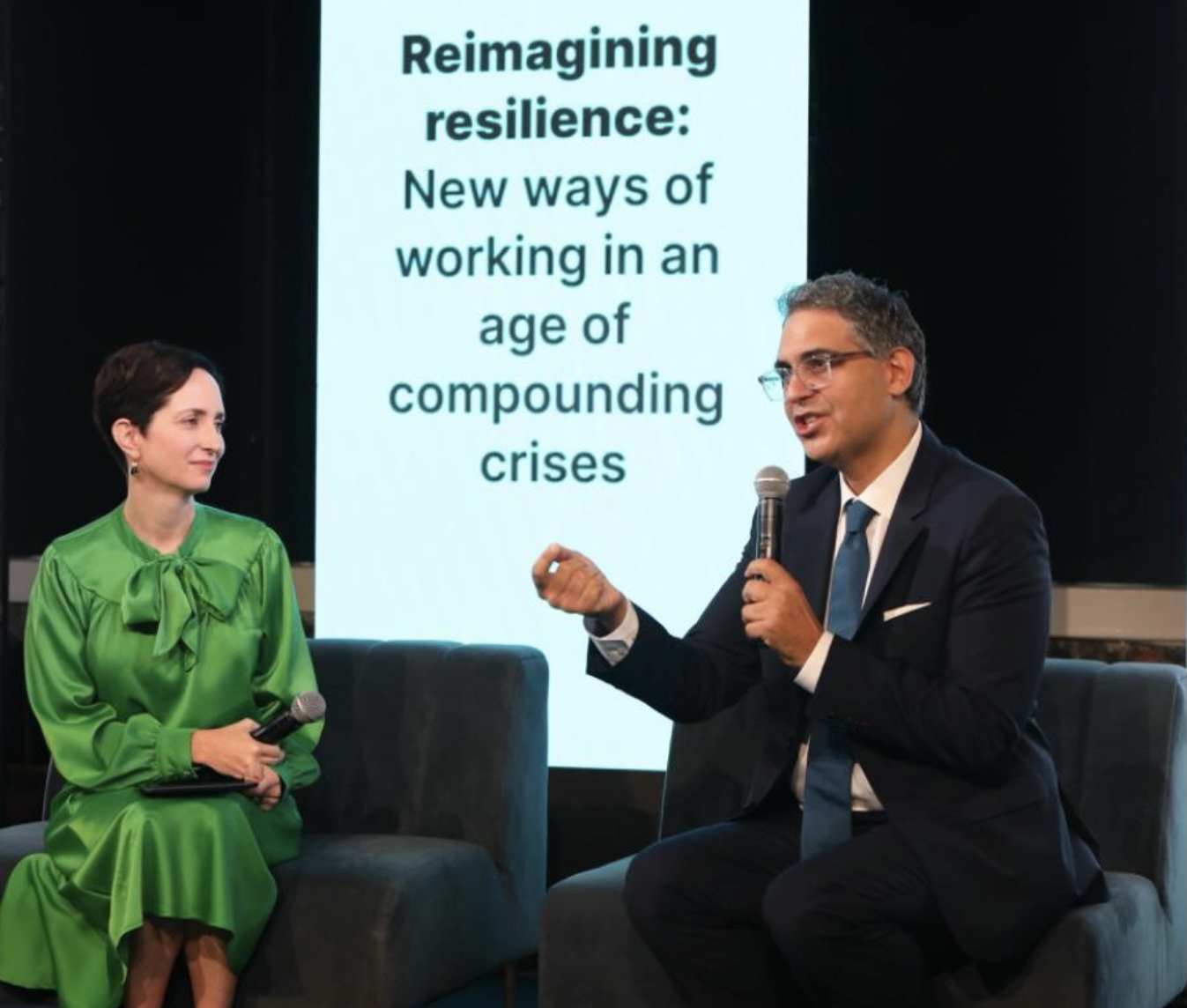By Antonis
Copyright thenationalherald

NEW YORK – Jonathan Papoulidis, Vice President of External Engagement at Food for the Hungry, spoke with The National Herald about the Christian humanitarian aid and global development organization, and how his Greek heritage influences his life and work.
Food for the Hungry is in New York for the United Nations General Assembly and the Concordia Summit, where President & CEO Mark Viso will join leaders from UNICEF USA, United Way, and GoFundMe to discuss how philanthropy and aid are evolving to meet climate, conflict, and humanitarian challenges.
TNH: How did you first become involved with Food for the Hungry?
Jonathan Papoulidis: I’ve had a long career in international aid spanning 25 years in humanitarian, peace and development. I focus on helping vulnerable people in fragile countries. When some colleagues joined Food for the Hungry, they asked me to also have a look. From the moment I saw the organization’s (then) Twitter account, I was immediately drawn in. Under the nonprofit’s name were the words, building resilience for the most vulnerable communities in hard places, and I thought to myself, what incredible alignment with my own work! Food for the Hungry is a Christian-based charity, which meant it was a place to live out my faith and professional calling. I interviewed for a role, and it’s been almost four years now. It was an instant fit.
TNH: Where do you see the future of the organization amid the current challenges?
JP: Food for the Hungry turned 50 a few years ago and we asked ourselves, what must we do differently for the next 50 years? There was no easy answer in the face of so many global challenges- from a recent pandemic, to increasing conflicts and disasters, to economic shocks, and significant reductions in foreign assistance from traditional donors.
We began a “reimagination” journey to adapt to these profound challenges. What’s now clear about our future work is: we will focus on more scalable systems level change that is grounded in heightened value exchange and accountability to the most vulnerable people who we serve; and we will be radically agile in how we do this. Instead of only delivering through a charitable model, we will establish different tracks for social innovation, private ventures and public sector solutions so that we’re able to pivot to whatever track is best suited to a particular challenge to achieve the most impact at scale.
TNH: What is a key emerging solution for vulnerable communities?
JP: Resilience. For the last couple of decades, there’s been an idea that if you can give people and economies a “big push” in the right direction, they would meet their needs, overcome poverty and kickstart development. So, our sector has focused on providing communities and countries with bundles of assets, training, jobs, services, financing and support. But what we see in this age of crises is that people who overcome poverty don’t just have more skills and resources, they are more resilient. They have more social networks, know-how and resources to deal with disasters, economic shocks and instability. We need a big push for resilience. This has become central to our approach.
TNH: How can The National Herald’s readers become involved in Food for the Hungry?
JP: Please reach out! Visit our website (www.fh.org) to learn more about our work. Volunteer. Connect on social media. Join our advocacy efforts with Congress and other leaders to help the most vulnerable. Consider child sponsorship, perhaps the most meaningful way to help communities we serve and see the world through their eyes.
TNH: How does your Greek heritage influence your life and work?
JP: At the risk of sounding like a character from ‘My Big Fat Greek Wedding’, Greece is the cradle of Western civilization. And yet, Greece has gone through incredibly hard times, dealing with economic shocks and other destabilizing global challenges. My heritage helps me appreciate that, like Greece, the countries where we work have their own civilizational wisdom, ingenuity and beauty that are not erased by political and economic crises. If anything, these attributes are a source of great social and economic resilience. The aid community has too often ignored local knowledge and practice while trying to transplant external solutions to very different places.
I spent many summers in Greece as a child with my Yiayia. There I discovered the simplicity, happiness but also daily struggles of village life. I’ve always taken that experience with me to rural areas in Africa, Asia and Latin America. Too often in our sector, we only see what these areas lack instead of valuing how they adapt and even flourish during difficult times, and we don’t always recognize our struggles and similarities across continents. I feel blessed to bring Greece with me wherever I go.
More information about Food for the Hungry is available online: www.fh.org.